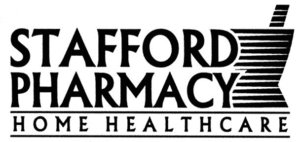Energy drinks are relatively new to the market, and began drastically gaining popularity in 2001. These beverages are packed full of ingredients that claim to boost your energy, enhance mental acuity, burn calories for weight loss and even “give you wings”. Originally these drinks were classified by Health Canada as Natural Health Products, which meant that producers didn’t have to put nutritional information on the labels. However, late in 2011, Health Canada changed the classification of these drinks to be foods so that all nutritional information would have to be on the labels. Additionally, Health Canada states that no single serving can contain more than 180 mg of caffeine similar to the amount found in a medium coffee.
Critics of these beverages aren’t so much concerned about occasional users of these drinks, however when used in the following manner these seemingly harmless beverages may cause significant harm.
The change in regulations also meant that following warning labels are now required on energy drinks:
- Not recommended for children and teens
- Why not? The amount of caffeine in these drinks is much higher than the recommended maximum daily intake in children under the age of 12. For teens, no more than 2.5 mg/kg body weight should be consumed therefore the amount in these drinks may be too high for small teenagers as well. Excess caffeine has been shown to cause behavioural effects, irregular heartbeat and nervousness.
- Do not use with alcohol
- Why not? Alcohol and energy drinks both cause dehydration. When energy drinks are combined with alcohol, the person drinking may not realize that they are becoming dehydrated. Additionally, it may prevent an individual from realizing how intoxicated they actually are.
- Contains high levels of caffeine
- Should not be used by pregnant women
- Pregnant women should not consume more than 200 mg a day. Consuming more than this increases the risk of miscarriage or a low birth weight baby.
It has been suggested that these drinks be sold only in pharmacies due to their potential health effects. That may be taking things one step too far; after all we don’t have to go to a pharmacy to purchase coffee. While they can cause problems for certain individuals, we believe that consumers need to take responsibility and learn about what they are consuming. It is extremely important to know what you are putting in your body, especially if you have a medical condition.
With that being said, there are a few other warning labels that should be on energy drinks to warn potential consumers of these important hazards:
- Not to be used as a sports drink
- Why not? These drinks cause dehydration.
- Contains herbal ingredients which may interact with certain medications such as warfarin. Ask your doctor or pharmacist if this is safe to use before consuming.
- Some energy drinks contain ginseng or gingko
- If you have high blood pressure, a heart condition, or are diabetic consult with your doctor or pharmacist before consuming.
If you are concerned about the health effects of energy drinks and if they are safe for you or a family member ask your pharmacist!
For more information on energy drinks visit: http://www.hc-sc.gc.ca/index-eng.php


